Father looking for son in the "hell on earth" of Syria, President Putin shed tears
(Baonghean.vn) - When President Putin shed tears; Japanese Prime Minister Shinzo Abe's cabinet approval rate dropped; Father searched for his son in the "hell on earth" of Syria; Russia released evidence accusing the US of interfering in the presidential election;... are the outstanding international news of the past 24 hours.
1. When President Putin shed tears
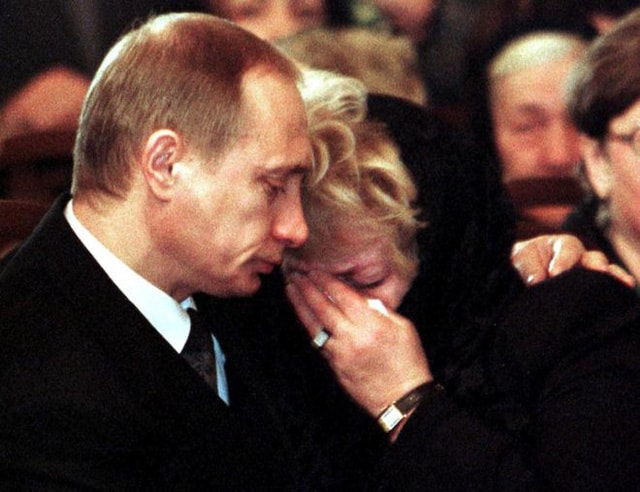 |
| Mr. Putin comforts Ms. Lyudmila Narusova, Mr. Sobchak's wife, at the teacher's funeral in 2000. Photo: Reuters |
During his 18 years in power, Russian President Vladimir Putin rarely shed tears in public. One of the few times he did was at the funeral of Anatoly Sobchak, a politician considered Putin's mentor.
In the Russian election on March 18, coincidentally, Mr. Putin will run for president with 7 other candidates, including Mr. Sobchak's daughter, Ms. Ksenia Sobchak. She is also the only female candidate in this election.
“I am competing with everyone, including Putin. But I will not attack him personally. For me, Putin is the person who helped my father in difficult situations and, you could say, saved his life,” Ksenia Sobchak said at a press conference announcing her candidacy on October 24 last year.
2. Japanese Prime Minister Shinzo Abe's cabinet approval rating drops
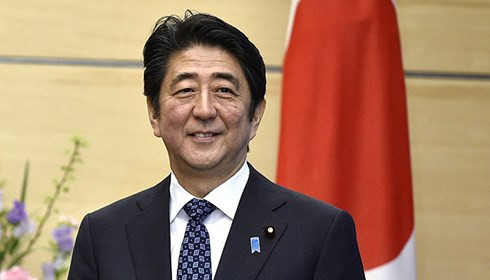 |
| Japanese Prime Minister Shinzo Abe's cabinet approval rating has fallen. Photo: Zee News. |
The approval rating for Japanese Prime Minister Shinzo Abe's Cabinet fell 2.7 percentage points in February to 48.1 percent, according to a Kyodo News poll released on March 5. According to the survey, the issues that Japanese people are most concerned about are the labor reform bill, constitutional amendments, and the North Korean issue.
Nearly 70% of respondents said it was unnecessary for the Japanese parliament to pass a draft labor reform bill that would expand the “at-will labor” system, under which workers work a certain number of hours and are paid a fixed salary, regardless of the actual hours worked. Opposition parties and unions have criticized the system as leading to a situation of “no overtime pay.”
3. Father looking for son in "hell on earth" Syria
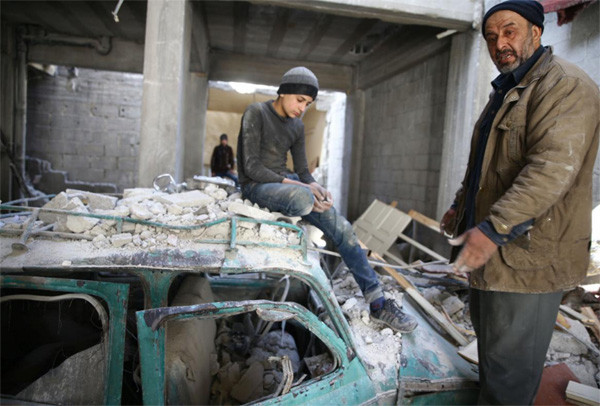 |
| Abu Mohammad Alaya searches for his son in the rubble. Photo: Reuters |
The February 22 airstrike on the town of Douma, in Eastern Ghouta, killed Alaya’s wife and nine-year-old daughter. Their bodies were blown out of the building by the force of the explosion. The devastated father remembers his son as a soccer fanatic. They had bought a new TV to watch the World Cup final in Russia this summer. The family was sheltering in the basement when Mohammad went out to buy tea.
Hundreds of people have been killed and injured as the Syrian government army decided to intensify its offensive to retake Eastern Ghouta, a rebel stronghold near the capital Damascus.
The United Nations says there are now nearly 400,000 civilians trapped in Eastern Ghouta and their living conditions are deteriorating. Secretary-General António Guterres described Eastern Ghouta as "hell on earth".
Russian President Vladimir Putin has ordered a daily five-hour ceasefire starting February 27 to create a humanitarian corridor to evacuate civilians and allow aid convoys to reach the area. However, violations occurred on the first day.
4. Kim Jong-un dines with South Korean delegation
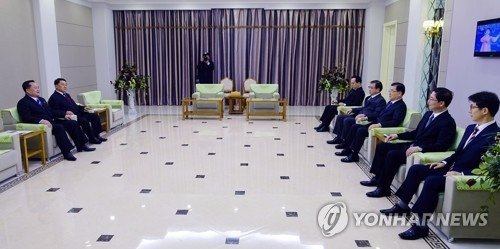 |
| The South Korean delegation is welcomed at a hotel in Pyongyang, North Korea, on March 5. Photo: Yonhap. |
The plane carrying the South Korean delegation landed at Sunan Airport in Pyongyang, North Korea, at 2:50 p.m. on February 5, an hour after taking off from Seoul Air Base, South Korea. The delegation of 10 people, including five support staff, was led by Chung Eui-yong, head of the Blue House National Security Office.
"North Korean leader Kim Jong-un hosts dinner to welcome special envoys",Yonhapquoted Kim Eui-kyeom, spokesman for the Blue House. The dinner began at 6 p.m. This is the first time the North Korean leader has met with South Korean officials.
North Korean state mediaKCNApreviously reported that "special envoys of the South Korean President arrived in Pyongyang on March 5". Welcoming the South Korean delegation was Ri Son-gwon, Chairman of the Committee for the Peaceful Reunification of Korea.
A South Korean delegation will visit North Korea for two days, the first time Seoul has sent a delegation to Pyongyang since President Moon Jae-in took office in May 2017.
5.Russia releases evidence accusing the US of interfering in the presidential election
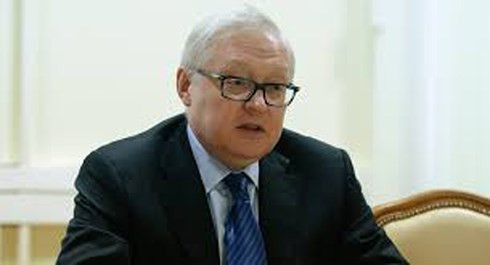 |
| Russian Deputy Foreign Minister Sergei Ryabkov. Photo: Sputnik. |
Russian Deputy Foreign Minister Sergei Ryabkov said on March 5 that Russia has sufficient evidence to prove that the US is deliberately interfering in the country's presidential election.
This statement was made as Russia is preparing the final stages for the presidential election taking place on March 18. Interfax news agency quoted Mr. Sergei Ryabkov as affirming that the US is trying to cause chaos in Russia and that the US sanctions against Russia are also aimed at bringing instability to Russia.
6.Iran could resume high-level uranium enrichment in just two days
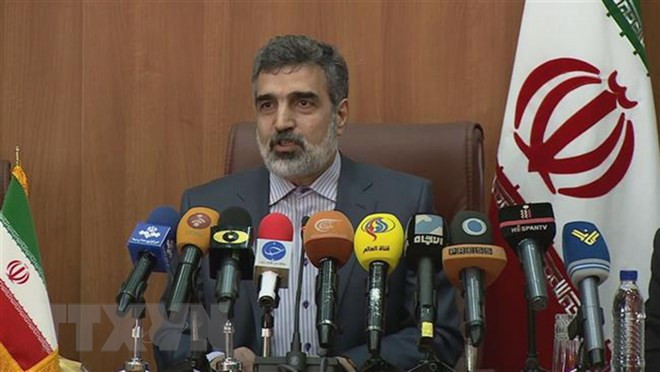 |
| Spokesperson for the Atomic Energy Organization of Iran Behrouz Kamalvandi. Source: Press TV/ VNA |
Iran could produce higher-enriched uranium within two days if the United States withdraws from the historic nuclear deal signed between Tehran and six world powers in 2015, Iran's state-run al-Alam television channel reported on March 5, citing Behrouz Kamalvandi, spokesman for the Atomic Energy Organization of Iran.
The official said: "If the US withdraws from the agreement.... Iran can resume 20% uranium enrichment in less than 48 hours."
Mr Kamalvandi stressed that the nuclear deal - under which Iran must limit its uranium enrichment program to help ensure it is for peaceful purposes only in return for the lifting of financial sanctions - cannot be renegotiated as the US has demanded.
7.Germany warns protectionism is the wrong path for the US
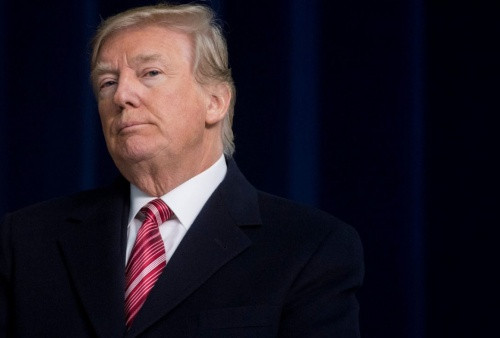 |
| US President Donald Trump. Photo: AP. |
"A trade war would not benefit Germany, Europe or America,"AFPquoted Steffen Seibert, spokesman for German Chancellor Angela Merkel, speaking in Berlin on March 5 after US President Donald Trump last week threatened to impose tariffs on cars imported from the European Union (EU).
“Seclusion and protectionism are the wrong path,” Seibert said. “These measures will harm international trade flows and our industry, but above all, they will harm workers and consumers on both sides of the Atlantic.”
